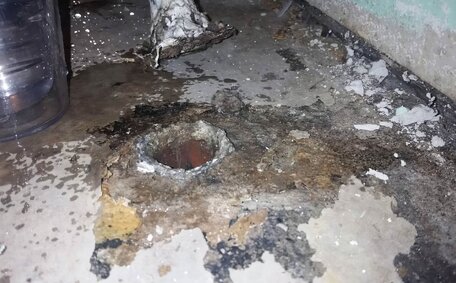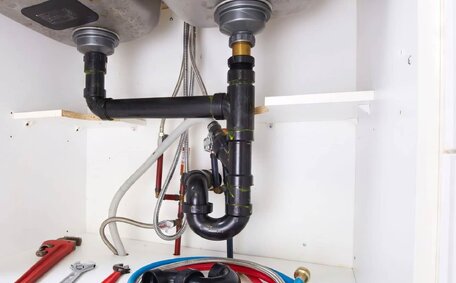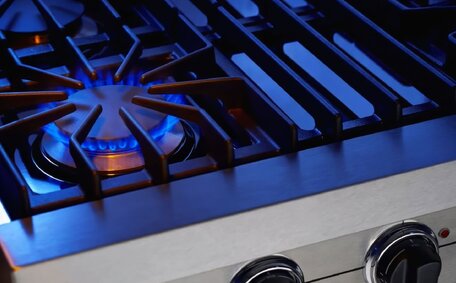Introduction to Water Pressure and Hot Water Systems
Water pressure is an important factor in ensuring hot water systems work properly. The typical water pressure range is 40 to 80 psi. Low or high pressure outside of this range can most likely cause low water delivery issues and temperature inconsistencies.
Low water pressure your home’s plumbing may endure often leads to issues with inadequate hot water delivery. There are various potential causes, from sediment buildup to worn out components, that we will explore in this article.
We will provide guidance on troubleshooting hot water system problems related to low water pressure, including practical solutions focused on Bankstown and surrounding regions. Key topics include:
- The role of water pressure in hot water systems
- Typical water pressure range
- Causes and solutions for low hot water pressure
- Preventative measures
- When to call a professional Bankstown plumber to address buildup your system might be facing
Accurately diagnosing issues when hot water pressure is too high ensures homeowners and businesses receive a consistent supply. Grasping how water moves through and out your system is crucial in discerning the impacts on water pressure and heater functionality.
Understanding the Difference Between Water Flow Rate and Water Pressure
Water flow rate, indicative of the volume of water moving throughout your house via the pipes, and water pressure are two connected yet distinct metrics crucial in troubleshooting hot water system issues.
Water flow rate refers to the amount of water, measured in gallons per minute (gpm), moving through the water pipes and out of your faucets and shower heads. It indicates how much water comes out, reflecting the water volume being delivered.
In contrast, water pressure measures the amount of force pushing water through the plumbing system, using the metric of pounds per square inch (psi). Typical household water pressure ranges from 40 psi pounds per square inch to 80 psi.
You could have sufficient pressure of 60 psi but an inadequate flow rate of only 1 gpm. This could due to only a narrow stream of hot water stemming from the limited flow volume, even though the water system pressure meets the normal psi range.
Water coming at low pressure in hot water heaters, typically due to deteriorated pipes or clogged filters, diminishes both flow rate and pressure, potentially signaling issues with your hot water unit. However, some causes specific to flow rate include partially closed supply valves, undersized pipes, and restricted shower heads. An understanding of the difference between both hot water flow and pressure allows for accurate troubleshooting.
Adequate pressure water and flow rate are both vital for properly functioning systems. We specialise in diagnosing flow rate deficiencies and solving situations where you might lack pressure for Bankstown homes and businesses.
Common Causes of Low and High Water Pressure Problems
Several common factors that causes low hot water or excessive pressure can negatively impact systems:
Low Water Pressure
- Partially closed supply valves reducing flow
- Clogged water filters blocking water flow
- Mineral deposits and sediment accumulating in pipes and restricting flow
- Undersized supply lines unable to deliver the necessary amount water volume
- Issues with water pressure regulator setting it too low
- Corrosion and wear on pipes, which can cause low hot water flow restrictions
High Water Pressure
- Faulty water pressure regulator failing to reduce incoming residential water pressure
- Commercial properties connected directly to municipal water mains with high pressure
- Booster pumps on properties increasing pressure beyond normal levels
Excess pressure, particularly if exceeding 150 psi pounds per square inch, could activate safety release valves, disrupting both cold and hot water systems. This process squanders both excess water and your energy due to needless heating. Pressure low can be a symptom that your plumbing systems are being deprived of sufficient hot water supply.
For Bankstown homes and businesses we rigorously inspect all components affecting your hot water heater to diagnose flow restrictions triggering low pressure. To safeguard systems from excessive pressure, To safeguard your plumbing system, we install tempering valves alongside pressure regulators, ensuring water temperature stability.
How Sediment Buildup Impacts Hot Water Systems
Sediment buildup in your hot water tank and connected pipes is a common issue, particularly in regions with hard water. Over time, you may encounter mineral buildup in your tank, leading to accumulation in pipes, valves, and heating elements from the water supply.
This sediment buildup increasingly restricts water flow and pressure, which a water heater can aggravate over time. It acts as an insulator around heating coils, forcing the system to work harder to keep water hot. Sediment also accelerates wear and corrosion.
The effects on hot water systems include:
- Reduced flow water pressure and flow rate
- Longer heating times and higher energy bills
- Overheating risks due to restricted flow
- Safety valve and pipe ruptures from overpressure
- Failure of heating elements covered in mineral deposits
- Tank corrosion and potential leaks
We recommend flushing water heater tanks every 1-2 years in areas like Bankstown, where hard water can wreak havoc on your system. Annual inspections also help in catching any sediment buildup before they evolve into more significant issues. Replacing heating elements, anodes and other components on schedule also promotes longevity.
For your system’s new installations, we advise including full flow filters and sediment reduction valves. Preventing sediment extends the life your system’s and enhances efficiency.
Signs You Have a Water Pressure Problem
There are several signs indicating issues with low water pressure that negatively impact hot water delivery:
- Long wait times for hot water at fixtures, particularly noticeable when you’re standing by your shower
- Inability to run hot water from just one fixture without significant temperature drops
- Your hot water flow might start strong, then slow just one minute later
- Sputtering or pulsing flow from faucets instead of steady stream
- Overly high pressure can cause your pipes to rattle and allow in air bubbles
Signs like rust-coloured cold hot water appearances, regular pressure fluctuations, and spikes in energy bills indicate worn equipment. Pressure for both hot and cold water, including in your toilet, should be balanced; if cold pressure is notably higher, system components may need inspection.
For Bankstown homeowners, we delve into the issues when hot water pressure your system exhibits is less than satisfactory. We investigate issues such as failing pressure relief valves, flow restrictions from sediment buildup, bad water heater cause elements creating backpressure, and misadjusted regulators.
Don’t live with the frustration of inadequate hot water flow and delivery. Call Bankstown Plumbing on 1300 349 338 for expert troubleshooting and repairs.
Troubleshooting Low Hot Water Pressure
Should you encounter your low hot water pressure in Bankstown, a number of troubleshooting steps exist to try prior to calling for professional help:
- Confirm that the shut off valve for the hot water is fully open, as to not impede the water flow. Ensure to turn off and on valves to check if they might restrict flow when not fully open.
- Inspect your pressure relief valve. Faulty valves that cannot release excess pressure cause low hot water flow.
- Clean out accessible water filter screens. Over time sediment build up which blocks water flow.
- Test your water pressure, understanding the water pressure how it impacts your system. Pressure under 40 psi indicates worn plumbing and may require pipe repairs.
- Compare hot and your cold water pressure at various fixtures. If cold pressure is much higher, your hot water system likely needs maintenance.
- Flush out hot water pipes and heater to remove any mineral deposits. Buildup restricts flow which lowers pressure.
If none of those steps restore adequate hot water pressure, components like your water heater’s heating elements may need replacement, which could be a water heater cause for your troubles. Under such circumstances, it’s a good idea to seek professional guidance to Bankstown Plumbing on 1300 349 338 for an extensive system assessment, including checks for any drop water pressure.
The Role of Pressure Regulators and Expansion Tanks
Grasping how water pressure is regulated is essential, with pressure regulators and expansion tanks playing pivotal roles in sustaining safe hot water system pressure. A regulator controls incoming water pressure, while an expansion tank handles pressure increases from heated water.
Pressure Regulator
Ensure that, even on the Gold Coast, unregulated pressure from the main water supply doesn’t surpass a hefty 100 psi. Most hot water systems are designed for 50-60 psi, ensuring water pressure too is not an issue. Without a regulator, water pressure can damage pipes, joints, heating elements, and the tank.
A pressure regulator valve lowers water pressure to a safe level before the water reaches your hot water system. We recommend setting regulators between 50-60 psi to avoid too much pressure.
Expansion Tank
When water is heated, it expands in volume. An intact system thus ensures there’s room to supply hot water without excessive pressure buildup. Your tank, designed as an expansion tank, provides space for heated water to expand.
It contains a bladder and air pocket, making sure the system is equipped to supply hot expanding water, entering the tank and compressing the air pocket. This move is designed to make sure you alleviate excessive pressure on the water heating system flowing through your pipes.
Faulty or improperly sized expansion tanks can cause your system pressure spikes triggering the temperature and pressure relief valve. This can also lead to wastage of hot water and energy.
We size your expansion tank based on the hot water system’s capacity. Proper sizing and regular inspection prevents pressure buildup and safety releases.
Preventative Maintenance for Optimal Water Pressure
Preventative maintenance is crucial for maintaining optimal water pressure in your hot water system. This helps avoid common issues like sediment buildup, scale accumulation, and failing system components that can restrict flow.
We recommend the following routine maintenance:
- Flush the water heater annually to clear sediment from the tank
- Check and adjust your pressure regulator every 2 years or if you notice pressure fluctuations
- In hard water areas, install scale reduction valves and water softeners
- Every 3-5 years replace the anodes, heating elements, expansion tank diaphragm as preventative maintenance
- Inspect all water supply lines, valves, and connections for wear/leaks during annual servicing
Neglecting maintenance often allows preventable issues like mineral deposits and failing valves decreasing pressure over time. Schedule inspections let our Bankstown plumbers catch problems early before they escalate and lead to costly repairs.
Take a proactive approach - protective maintenance safeguards your investment. Routine servicing can help maintain optimal pressure, temperature, efficiency and longevity in your hot water system.
When to Call a Professional Plumber
In most cases, minor hot water heater pressure issues can be addressed with basic troubleshooting and maintenance. However, there are certain scenarios that indicate professional assistance is required:
- Persistently inadequate hot water flow even after shutting off all fixtures and checking supply valves
- Significant variation between hot and cold water pressure
- Visible leaks, cracks or serious corrosion on the hot water tank or connected pipes
- Faulty temperature and pressure relief valve releasing water
- Presence of sediment or strange odours/colour with hot water
- No hot water at all - system completely unresponsive
- DIY repairs attempted unsuccessfully
- Installation of new equipment or significant plumbing alterations needed
- Assistance interpreting complex mechanical issues or multiple simultaneously problems
Your plumber from our fully licenced Bankstown team has the expertise to quickly diagnose your hot water pressure problems. We provide gas hot water repairs 24/7 and preventative maintenance for peak efficiency.
Trust Bankstown Plumbing’s certified technicians to get your hot water system running optimally. Call 1300 349 338 to schedule service.






